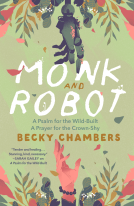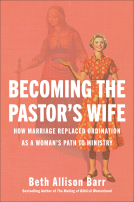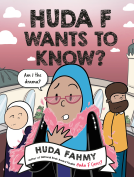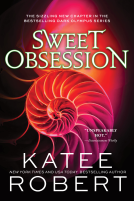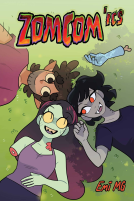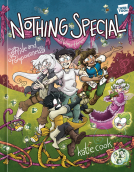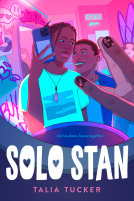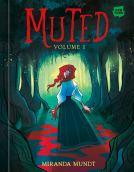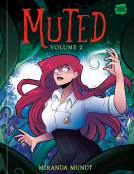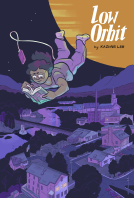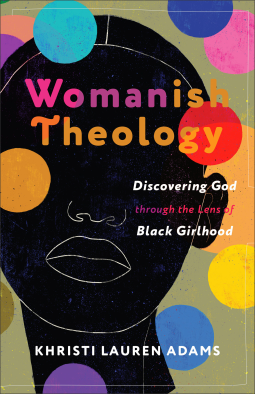
Womanish Theology
Discovering God through the Lens of Black Girlhood
by Khristi Lauren Adams
This title was previously available on NetGalley and is now archived.
Send NetGalley books directly to your Kindle or Kindle app
1
To read on a Kindle or Kindle app, please add kindle@netgalley.com as an approved email address to receive files in your Amazon account. Click here for step-by-step instructions.
2
Also find your Kindle email address within your Amazon account, and enter it here.
Pub Date Aug 20 2024 | Archive Date Sep 06 2024
Baker Academic & Brazos Press | Brazos Press
Talking about this book? Use #WomanishTheology #NetGalley. More hashtag tips!
Description
In Womanish Theology, Adams reflects on those experiences, inviting readers to learn from a new perspective and guiding them to a deeper understanding of their own spirituality.
This groundbreaking book introduces a new branch of theological thought Adams calls womanish, as a play on the womanist tradition (the theology of Black womanhood). "Womanish," remembers Adams, is a term Black mothers used for young girls as they grew more interested in doing grown-up things. Adams draws on her own life story as well as the life stories of other Black girls to explore theological concepts such as Scripture, theodicy, salvation, prayer, neighborly love, and the image of God.
Through this journey, readers will learn that theology is for everyone and that the whole community of God can learn from the spiritual insights of Black girls.
Advance Praise
“One thing is for sure: Khristi Adams is not and never will be a game! In Womanish Theology she describes a faith path for Black girls and women in a way that feels both hero and homegirl. This is required reading for all of us!”—Candice Marie Benbow, author of Red Lip Theology
“Khristi Adams is a consistent and credible voice for young Black women. In Womanish Theology, she generously takes us on a journey of the spiritual dimensions of her Black girlhood while unpacking the complex, developing, and rich theological wanderings of the contemporary Black girls and young women featured in this one-of-a-kind work. I found myself reclaiming and cherishing anew my own Black girl spiritual development journey.”—Christina H. Edmondson, certified cultural intelligence facilitator, public speaker, mental health therapist, and coauthor of Faithful Antiracism
“Womanish Theology is a bold and brave exploration of the spiritual lives of Black girls and adolescents. Through this collection of instructive testimonies, Khristi Adams offers extraordinary insight into the theological sources that engender hope, faith, and self-love. In taking Black girls’ spiritual lives and development seriously, Womanish Theology provides an important reminder: children are not just the future of our faith communities, they are also precious interpreters and ambassadors of the faith right now.”—Jonathan Lee Walton, president, Princeton Theological Seminary; author of Watch This! The Ethics and Aesthetics of Black Televangelism and A Lens of Love: Reading the Bible in Its World for Our World
“This book is an important and timely contribution to theological discourse. For more than two decades, I have known Khristi as a leader, mentor, and author who has played a significant role in shaping the emerging theology of numerous Black girls. Womanish Theology offers fresh ethnographic perspectives and gives voice to these girls, who have a lot to teach us about the nature, significance, and agency of God in our modern world.”—Cleve V. Tinsley IV, assistant professor of history and political science, executive director, Center for African American History and Culture, Virginia Union University
Available Editions
| EDITION | Other Format |
| ISBN | 9781587436345 |
| PRICE | $19.99 (USD) |
| PAGES | 192 |
Available on NetGalley
Featured Reviews
A deeply insightful book. A brilliant story written for a reader who is interested about learning new perspectives of black women surrounding the themes of Theology. 😌
 Abriyah W, Reviewer
Abriyah W, Reviewer
Growing up in a Baptist church and raised by my granny to stay in my word and let it shape my life I connect very intensely with this story. Being black and having faith can be difficult at times especially when you think about slavery and all the injustice we face as a people. This book explained all of that very eloquently.
 Shante G, Reviewer
Shante G, Reviewer
As a black woman of Caribbean descent living in the United States, I found Womanish Theology to be refreshing. Although much of my girlhood was spent between Jamaica and the Greater NYC area, many of Adams' own childhood stories were relatable. For example, a deep reliance on prayer was also emphasized in the community in which I grew up. Praying into the New Year during Watch Night Service was something my parents considered to be non-negotiable.
I resonated with the statement in the introduction where Adams writes: "To me, this was the standard for theological thought: older, White, male theologians." Adams demonstrates throughout the book that White males do not own theology, and that Black women and girls have great theological insights.
For example, Adams describes the role of Black parents and grandparents in the spiritual formation of young black girls. Particularly, Black grandmothers were the matriarchs of the family and modeled Christ-like lives for Black girls to follow. She artfully notes: "Our foremothers may not have been academy trained, but the wisdom gained through their life experiences qualified them as leading voices of the faith."
Chapter 3, "Womanish Theology of the Imago Dei," was my favorite. Adams makes an important point: Black girls believe that they are made in the image of God because they hear it so often. However, they also hear conflicting messages about their identities and worth. They are often encouraged to change themselves through hair straightening, skin lightening, etc. to fit into White society. Adams suggests that the same society that states Black girls are made in the image of God seems to whisper "Not quite."
Chapter 4, which addressed evil and suffering, was another great one. Adams highlights how Black girls practice "womanish resistance" by choosing gratitude in the face of evil and suffering. However, she also notes that Black girls are rarely given the opportunity to sit with and process trauma.
Throughout the book, Adams acknowledges certain theologies passed down to Black girls that were not necessarily helpful. For example, while memorizing scripture is good, Black girls are not often taught how to interpret scripture. As she says, we should teach Black girls to interpret scripture. While the scriptures are "instructive" and "medicinal," they have also been incorrectly used to harm Black girls. Black girls are empowered when they can know and interpret scripture themselves.
My only critique is that the book could benefit from a bit more scholarly explanation behind some of the themes. While the memoir style and personal anecdotes are powerful, additional research into African American studies, history, sociology, etc. could provide a deeper understanding for readers unfamiliar with the Black girl experience. However, Adams does include the work of Womanist theologians, which adds insight to the book.
Overall, I deeply enjoyed reading this book. It can be helpful for anyone interested in theology, gender studies, or Black cultural studies. Black women may feel seen as they read through Adams' personal stories; White men and women as well as people of other ethnicities will benefit from hearing Black stories.
While I fully acknowledge that I am not this book’s intended audience, I’m so glad for the opportunity to learn under a gifted teacher/preacher.
Womanish (black girl) Theology uses Scripture, scholarly writings, gender studies, and personal stories to paint a picture of the deep well that is the inner spiritual lives/thoughts/gifts of young black women.
I particularly loved the chapters on Imago Dei, and hospitality.
While I have the unfortunate tendency to #notallwhitewomen, this book allowed me to deal with Caught Feelings in my own head, rather than out in the world where I might hurt someone.
Thanks to NetGalley and Brazos Press for this illuminating ARC.
I received an advance review copy for free, and I am leaving this review voluntarily. I found this book really enlightening. I have seen from documentaries, the news and some films that God and religion is deeply ingrained in many Black women’s lives but never took too much time to think about it, not being so myself. But this book not only explained the general link but goes more in depth such as through prayer, hospitality, and scripture. I liked the combination of theory alongside little quotes by different women and girls, as well as an age to contextualise it more in terms of stages of life.
Adams' perspective about being a Black girl into a Black woman who is of faith encompasses a wide range of ideals and beliefs. I learned about theodicy, a word I think about its definition often. There are more anecdotes than data, which truly brings a human experience to faith.
